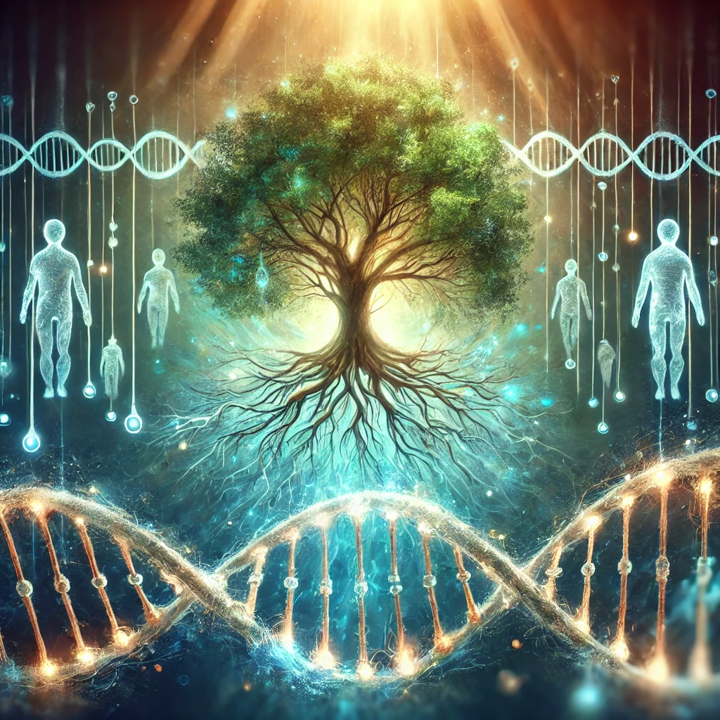There’s a popular book in neuropsychology titled, The Body Keeps the Score by Bessel van der Kolk which has seen widescale adoption and appreciation since its publication in 2015. The author suggests trauma is not only a psychological experience but also a physiological one. The author posits traumatic experiences alter how the brain and body function, leaving lasting imprints which can affect an individual’s emotional regulation, behavior, and physical health. While stopping short of claiming trauma (or deeply impactful memories and experiences) are passed to future generations through (epi)genetic inheritance, van der Kolk does suggest the possibility exists and further research is warranted. Note: epigenetics as a research topic and field was still evolving at the time of the book’s release in 2015 and remains nascent today (2025).
As an addiction psychologist, I tend to agree with van der Kolk’s position on trauma storage, just not somatically in any physical location within the body. Instead, I believe traumatic memories and experiences are stored epigenetically and thus subject to generational inheritance. In short, traumatic memories and experiences are written epigenetically (histonically), then read like metadata into gene expression during methylation – instructions about the instructions, one might say.
More recently this idea, that the body stores trauma, memories and experiences, has been challenged in the book, The Body Does Not Keep the Score: How Popular Beliefs About Trauma Are Wrong, by Michael Scheeringa (2024). Debates on this topic are heated and can be notably uncivil. Writing as an addiction psychologist trying to understand both sides but also trying to reach some form of conclusion, I’ve penned the following essay providing a balanced comparison between the two ideas, highlighting the key points and arguments from each side. I do this through the lens of generational (inherited) trauma. The central question I seek to answer is: if traumatic memories and experiences are not stored and passed on epigenetically, how do we account for the apparent generational inheritance of addiction (and other familial) behaviors and disorders?
You’ll note I’ve presented this essay in the form of prompts addressing specific aspects of the topic in an attempt to make it conversational. Because I believe the topic has more questions than answers, this format made the essay easier to write (and I hope, read).
Follow this link or click the graphic below to access the essay.


Its like you read my mind You appear to know a lot about this like you wrote the book in it or something I think that you could do with some pics to drive the message home a little bit but instead of that this is fantastic blog An excellent read I will certainly be back